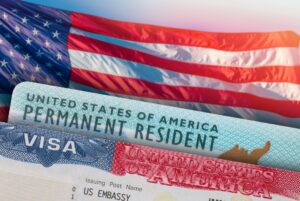If you are applying for U.S. citizenship, you will understand how challenging this process can be as so much information is required. Unfortunately, there are many reasons why you may receive a denial of U.S. citizenship, depending on factors specific to your case, as well as more common application errors. Running into issues with your application or receiving a denial can significantly delay immigration, making this a much more expensive and stressful process. Here is everything you need to know about why you may have received a denial of U.S. citizenship and what you can do about it.
Common Reasons For Denial of U.S. Citizenship
Whether you are in the process of applying for U.S. citizenship or you have run into issues with your application, it is helpful to understand why you may receive a denial of U.S. citizenship. Understanding where you may have gone wrong will help you to know how to correct the issue before proceeding with your immigration case.
You should also take the step of hiring an immigration attorney to represent you and help you throughout the application process to avoid running into common application issues.
Here is a breakdown of some of the most common reasons for the denial of U.S. citizenship.
Continuous Residence Issues
If you have received a denial of naturalization, this may come down to continuous residence issues as there are a specific number of years that you must have resided in the country before you submit your application. The general requirement is to have been continuously present for five years to qualify for naturalization. Maintaining continuous residence in the country also includes maintaining a primary home and abstaining from frequent travel abroad.
Poor Moral Character
In order to achieve U.S. citizenship, one of the eligibility requirements is to show good moral character during the five years of continuous residence in the United States. Things like criminal convictions, tax fraud, and other qualifying bad acts can lead to poor moral character.
Keep in mind that not all criminal activity will lead to an automatic denial; only criminal activity that has led to convictions.
Committing Fraud or Misrepresentation
One of the most common reasons for denial of U.S. citizenship is committing fraud on your application. When you are applying for naturalization, it is crucial that you provide truthful information and avoid any form of misrepresentation. Even an accidental mistake could lead to the USCIS doubting your entire application, which can lead to excessive scrutiny and denial.
You may also receive a denial if you are a male who did not register for selective service during the statutory period.
Having a Criminal Record
Not only will the USCIS deny applications if the applicant has shown poor moral character due to criminal activity, but it will also look at any past criminal activity, such as your criminal record. Keep in mind that having a criminal history does not automatically mean that your application will be denied, as it is at the discretion of the USCIS to deny or reject applicants. For serious crimes on your criminal record, it is possible that you may receive a permanent denial of citizenship.
Safety Concerns
One of the citizenship application denial reasons relates to national security and public safety concerns. If the USCIS notices anything when verifying your identity or doing a background check that poses a safety risk to the U.S., this may result in a denial. Common safety concerns include things like association with terrorist groups, criminal enterprises, and anti-American activities.
Insufficient Knowledge
To be approved for naturalization, there are specific steps you need to go through, including demonstrating basic English language skills and an understanding of American civics. If, during the application process, you fail to pass these standardized tests, that will lead to an automatic denial of U.S. citizenship. That is why it is essential that you thoroughly prepare beforehand and understand what you will need to know.
How to Tackle U.S. Citizenship Challenges Effectively
As complex as applying for U.S. citizenship can feel, the process is relatively straightforward if you follow the correct steps. One of the most common errors people make that can lead to an application denial is not filling out the application correctly, not providing accurate information, or not providing the necessary documentation. You need to be thoroughly prepared beforehand and understand what you need for your application to be approved.
Before you begin this process, you need to hire an immigration attorney to represent you and help you throughout the application process. They will have a thorough understanding of how this works and can help you to avoid common errors. Hiring an attorney will also be essential if you have a more complex immigration case, such as having a criminal history.
If you have already applied for U.S. citizenship and received a denial, you need to review your denial notice to fully understand the reason for this. You will most likely have the ability to appeal this decision, which you will only be able to do if you know where you failed to meet the naturalization eligibility rules. Your attorney can also help you do this and create a strategy for appealing the decision for the best chance of having it reversed.
In most situations, you will be able to reapply for citizenship if your appeal is not successful, but you should never do this until you fully understand why you were denied. You will need to address these concerns before applying again to avoid the risk of receiving a denial for the same reason. If necessary, your attorney can also represent you in court to help explain why you are eligible for citizenship even if you have received a denial.
Hire an Immigration Attorney Today
Do you want to apply for U.S. citizenship and avoid the risk of receiving a denial? Contact us today at U.S. Immigration Law Counsel at 800-666-4996 to speak with an immigration attorney about your case. We will deal with the government, so you don’t have to!




